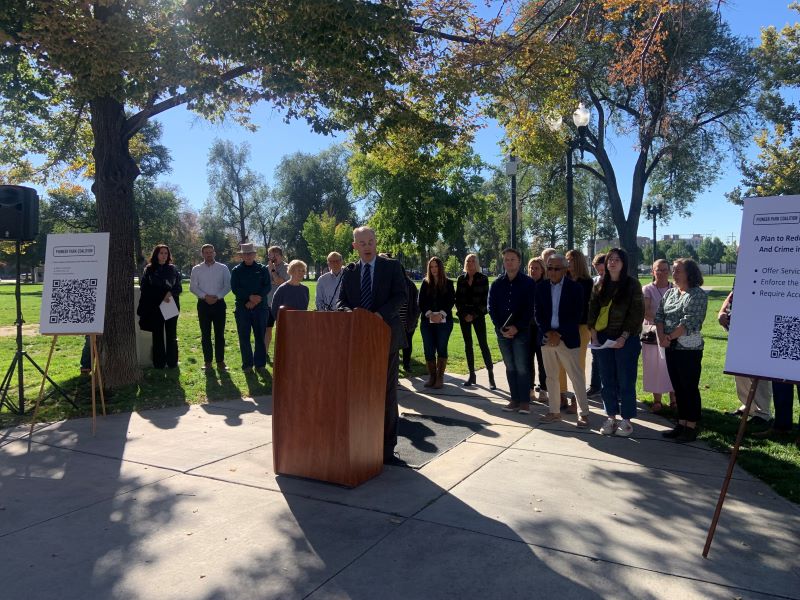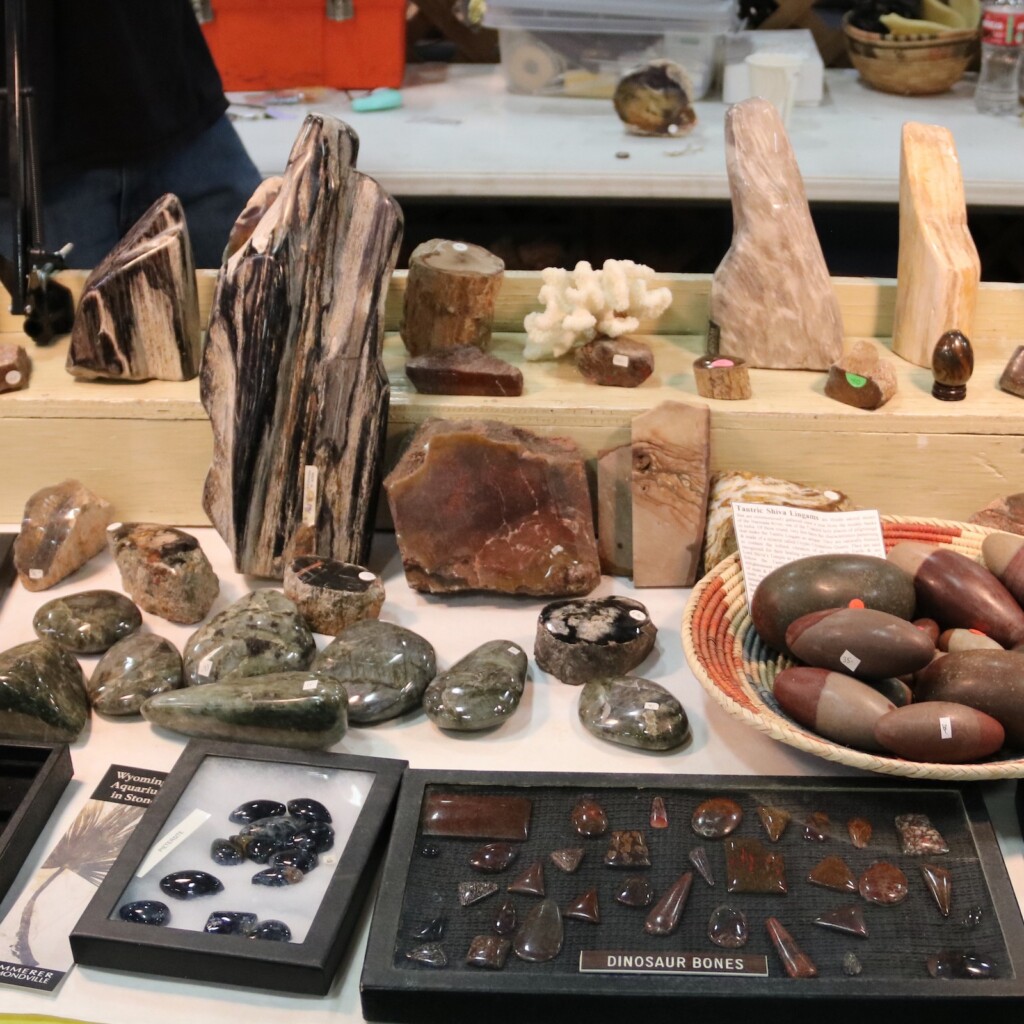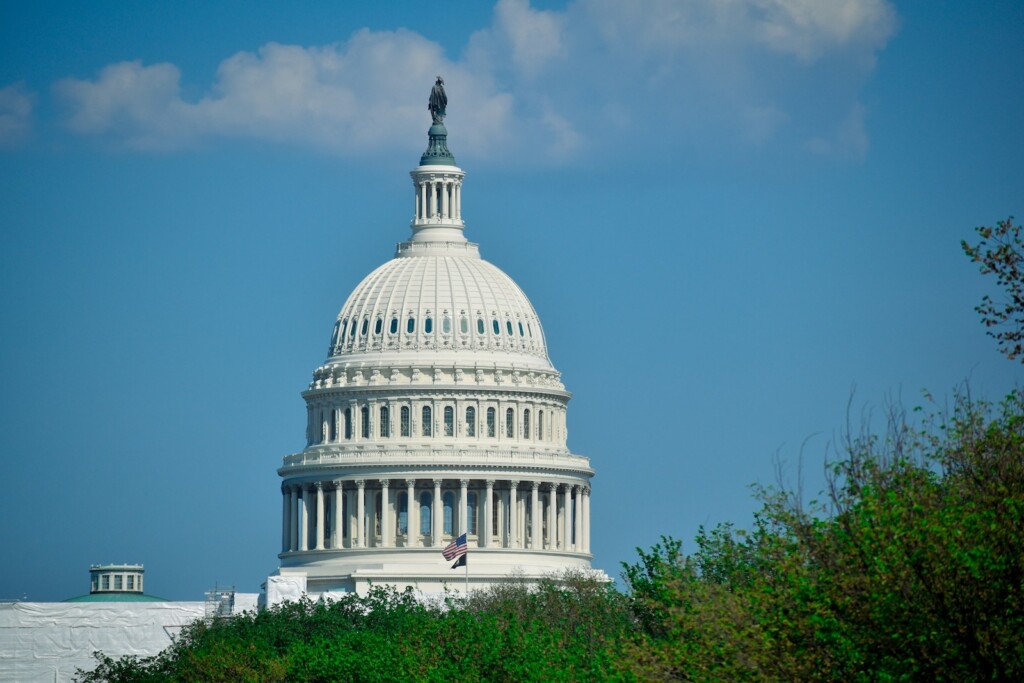
Utah Stories attended press conference organized the Pioneer Park Coalition where the coalition released its plans to curtail the problems of homelessness and crime that are plaguing Salt Lake City.
The Pioneer Park Coalition is made up of concerned residents, citizens, and business owners who believe that the homeless policy for Salt Lake City needs to change.
Amy J. Hawkins, Chair of the Ballpark Community Council said, people, want to frame this as an either-or situation, which is not. “Either I’m compassionate towards people who are going through the extraordinary trials of homelessness…Or I’m compassionate towards my neighbors who are having to contend with what to tell their children or their dogs eating human waste full of heroin.” She says it should not be an either-or situation they should be able to help everyone.
The Pioneer Park Coalition’s grand plan was announced along with business owners including Nicole Thomas who chose to leave downtown with her business Latter-Day Bride, which she operated in downtown Salt Lake City for twenty-three years. She says she had to move due to the perpetual problems she suffered due to the homeless population including a vicious attack on one of her employees.
Thomas said, “Salt Lake City’s approach to homelessness and crime is failing. Change must happen now. As business owners, and concerned residents we can no longer stand by and watch this city deteriorate. Millions of dollars are being thrown at the homeless crisis.”
Thomas believes that housing the homeless “will not work.” emergencies homeless shelters and homeless resource centers are some of the “biggest magnets for crime in the city according to 2021 police statistics. Police were called to the woman’s homeless resource center 1,177 times.”
Of the top thirty places where police were called last year, the leading places were where “resources” were being provided for the homeless, which have proven to be magnets for drug trafficking, sex trafficking, and violence. Some of the leaders include the Gail Miller Homeless Resource Center and the Gerald E. King Woman’s Homeless Resource Center and the Magnolia Apartments. All three neighborhoods around these facilities have deteriorated since the facilities opened.
Thomas says “full statistical transparency” is needed including holding those who operate these facilities accountable when violence is occurring outside. This accountability was written into their charter when they opened their facilities. But nobody is being held accountable. Later during the questioning period, it was asked what would happen if the facilities couldn’t improve or stop the drug trafficking and violence around their facilities. Scott Howell responded that they should “shut them down.”
Unlike all of the above-mentioned facilities, the neighborhood around where the Otherside Academy is located on 700 East and 200 South, has improved and the neighbors have embraced the tenants who occupy the buildings of this successful organization that operates to turn around the lives of ex-convicts and felons.
“Accountability is the key. And we now need to start holding all of these organizations and centers accountable for what is happening,” said James Behunin, Executive Director of the Pioneer Park Coalition.
Sanctioned Campgrounds
Long-term plans include sanctioned campgrounds around the valley offering showers, meals, and other services. PPC believes these camps should be spread across the Wasatch Front into cities such as Draper, Harriman, and Bountiful. But Behunin admits any homeless service areas will be a tough sell to neighborhoods, but they are already evaluating various state-owned lands.
Homeless “Transformational Campus”
Another plan includes a homeless campus for “Transforming Lives” said Behunin. A transformational resource center that could include “wrap-around services” including drug rehab services, psychiatric care and vocational training. Behunin says that the Haven for Hope Facility in San Antonio, Texas offers this model and it’s been transforming lives and has resulted in an 80% decline in homelessness in San Antonio. This 17-building, 24-acre facility is located in the heart of a former warehouse district in the city. Where a facility like this would be located in Salt Lake City is still uncertain.
WATCH THE VIDEO
SUPPORT LOCAL JOURNALISM AND SUBSCRIBE TO PRINT MAGAZINE
RELATED CONTENT
Green Phoenix Farm Helps Homeless Women in Salt Lake Get Back on Their Feet through Gardening
The Unsheltered With Mental Disorders in Utah
Hundreds of Unsheltered People are Sleeping on Salt Lake City’s Streets Tonight. Why?
Subscribe to Utah Stories weekly newsletter and get our stories directly to your inbox





